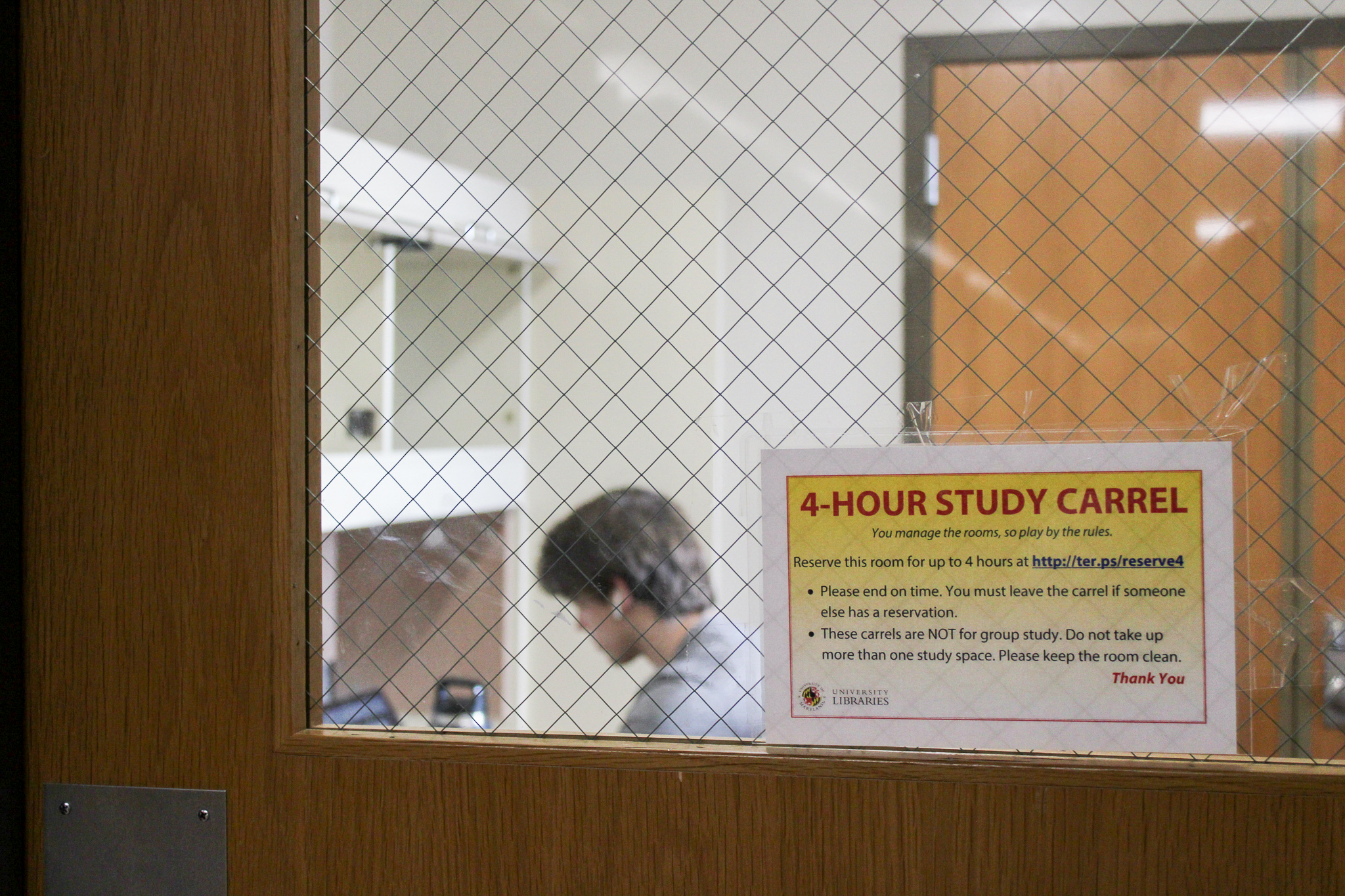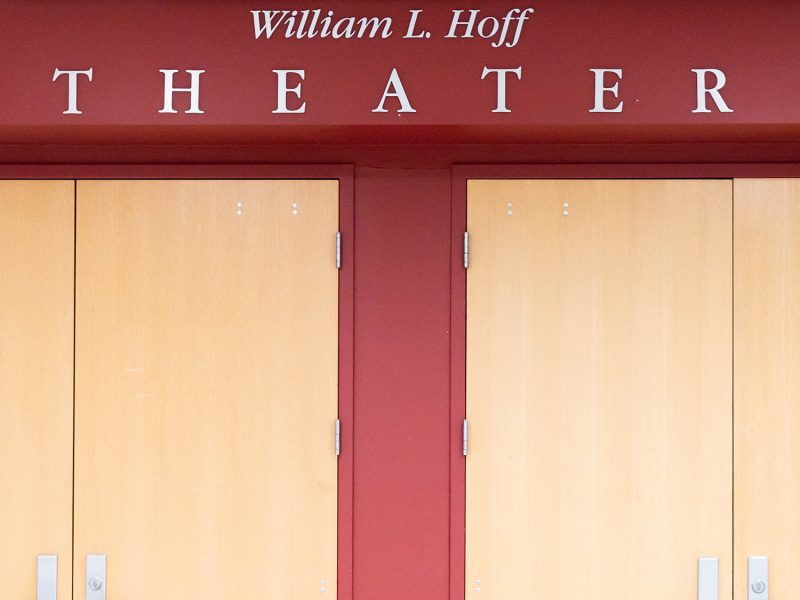Views expressed in opinion columns are the author’s own.
My personal motto — study hard, work hard — accurately summarizes my college experience thus far. While I love spending quality time with my friends, I take my studies quite seriously.
Sometimes, though, it’s difficult to balance my academic needs with my social life. I get distracted easily and will spend my time talking to whomever I’m with while ignoring my work. For that reason, as the type of student who needs solitude — and ideally silence — to study, the University of Maryland’s on-campus study carrels work perfectly for me.
As I transitioned to commuting this year, I’ve come to realize the importance of these on-campus study amenities. Study carrels act as isolated bubbles where I can catch my breath, focus on my schoolwork without distractions and even think out loud when needed without looking crazy.
However, as the ever-full reservation calendar shows, there will always be demand for these spaces on this campus because they are so beneficial to students. As such, this university should build more study carrels, or simply allot more spaces for students to study alone on campus.
As a commuter student who can’t just return to my residence to study, I struggle to find places on campus where I can gain privacy. I find solace in these tiny rooms as they grant me a place away from other students to get much-needed work done in a controlled environment.
While McKeldin Library does provide ample space for peace and quiet that allows one to focus, students with sensitivities for smells, sights and other extraneous distractions might still find trouble in public quiet areas. As such, private study carrels are invaluable to students.
However, finding an empty study carrel in McKeldin is easier said than done. In my experience, almost all of the study carrels available in the building’s seven floors — both reserved and unreserved — fill up by noon. It’s the same case for huddle rooms in Edward St. John Learning and Teaching Center, which provide quiet study and brainstorming spaces for groups, but they’re also notoriously hard to find on short notice.
It is clear these solitary study spaces are in high demand. With more study carrels available, students will have an easier time finding a place to study.
Libraries, such as Hornbake Library and the Michelle Smith Performing Arts Library, could easily alleviate the high demand for study carrels at McKeldin by increasing the availability of private study spaces. The Performing Arts Library in particular could provide a valuable space for freshmen and commuter students to study, given the building’s proximity to many freshman dorms and commuter student parking.
Another solution to meet this demand for study spaces on campus would be to make empty classrooms available for students to book for studying.
Many courses at this university require group assignments and presentations, which necessitate student collaboration. Empty classrooms would be ideal spaces for student groups to meet and work together without worrying about being too loud or disrupting other students.
Adding classrooms to the university library space availability website would increase study options for students who wish to study but can’t fit their groups into the small carrels. Buildings such as Susquehanna Hall, Skinner Building and LeFrak Hall could provide optimal rooms for students on South Campus.
Classrooms with several seats allow larger groups to study, which could leave the study carrels to solo users. Ultimately, more space would become available to students who wish to study on this campus.
Spaces to study are highly valued commodities and many students rely on study carrels for academic success. If this university truly wants to help students to succeed, it should consider allocating more study spaces available around the campus.
Dalia Mustafa is a sophomore economics and government and politics major. She can be reached at dmustafa@terpmail.umd.edu.



